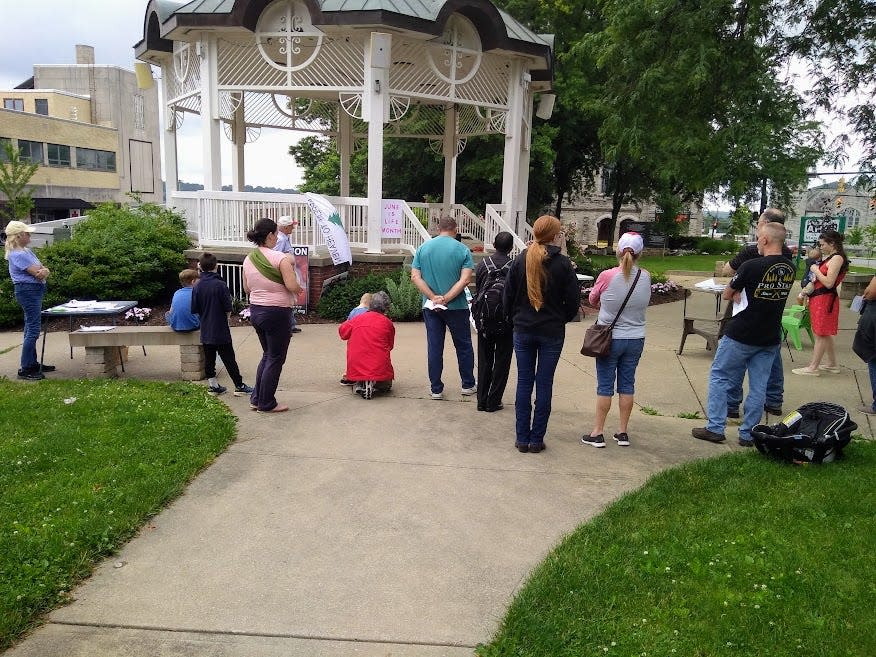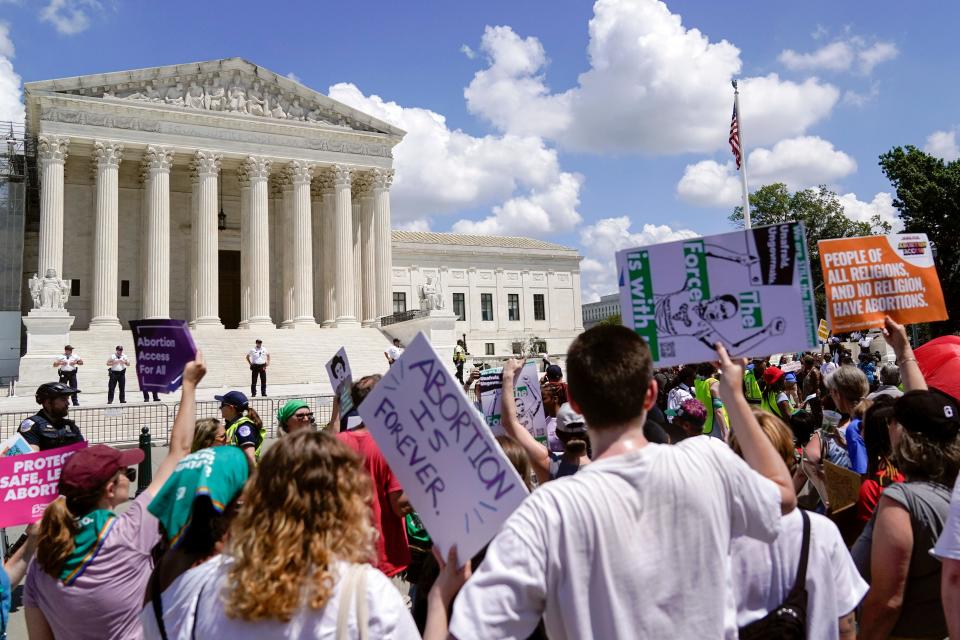A year after Roe v. Wade was overturned, Ohioans are split over abortion issue

It's an issue that has divided the country for decades, with no end in sight.
Roe v. Wade legalized abortion in the United States in 1973. Almost exactly a year ago, the U.S. Supreme Court issued the Dobbs v. Jackson Women's Health Organization decision, which overturned Roe v. Wade and freed states to ban abortion.
Since then, lawmakers in individual states have been scrambling in response to that ruling, which was issued June 24, 2022.
In Ohio, a woman can get an abortion through 21 weeks and six days of a pregnancy.
According to Reuters, Republican-controlled legislatures in numerous states passed restrictive legislation, with near-total abortion bans now in effect in 14 states.
Ohio, which has been a red state in recent elections, implemented a six-week abortion ban for three months after Dobbs. That ban has been temporarily blocked pending ongoing legislative battles.
Opinion polls show that a majority of Americans want abortion legal in all or most cases.
While no one from the Mansfield branch of Planned Parenthood responded to a message from the News Journal, the president and CEO of Planned Parenthood of Greater Ohio and Planned Parenthood Advocates of Ohio issued a press release ahead of the Dobbs anniversary.
"When we look at the U.S. Supreme Court's decision to overturn Roe v. Wade, we must acknowledge that they ignored historic precedents and the wishes of millions of Americans," Iris Harvey said. "By removing protections for abortion, they stripped away the right of bodily autonomy so many had relied on for decades. This destroyed guarantees for our health, safety and dignity to decide how we live and grow our families."
Pro-life group held recent rally in Mansfield
Protect Life of Ohio, a Mansfield-based group that formed before the pandemic and restarted about a year ago, held a rally at downtown's Central Park last weekend. The rally drew about a dozen supporters.
"The Dobbs decision by the U.S. Supreme Court in part corrected the erroneous and unjust 1973 decision legalizing abortion throughout the states," spokesman Greg Jevnikar said in a news release. "Now it is up to the individual states to decide what to do about the abortion issue."

A key will be Ohio's Aug. 8 special election.
Issue 1 will ask voters if it should be harder to amend the state's constitution. If approved, the proposal would require 60% of voters to pass a new constitutional amendment instead of a simple majority of 50% plus one.
In addition, Issue 1 would require citizens who want to place an amendment on the ballot to collect signatures from at least 5% of voters from the last gubernatorial election in all 88 counties instead of the current 44.
Issue 1 also would eliminate a 10-day cure period that allows citizens to replace any signatures deemed faulty by the secretary of state.
"We will be providing information on Issue 1, as well as the November abortion constitutional amendment likely to be voted on in November," Jevnikar said in a news release.
Jevnikar said he is opposed to abortion in all cases, including pregnancies resulting from rape or incest.
"They give the death penalty to the preborn instead of the person who did the crime," he told the News Journal.
Michigan has enshrined abortion in its state constitution, while Kentucky deleted a bill that would protect life.
"We've had a couple of defeats, but we're hoping to stand our ground in Ohio," Jevnikar told the News Journal by phone. "The other side is working like crazy to get signatures."
Pro-choice advocate urges people to vote in special election
Lauren Blauvelt, vice president of government affairs and public advocacy for Planned Parenthood Advocates of Ohio, is part of the "other side" Jevnikar referenced.
"... we are still at risk of losing abortion access here in Ohio. That is why it is so critical that Ohioans are able to take this decision into their own hands, so they can vote for their fundamental right to reproductive freedom," she said in a news release. "When Ohioans have the ability to directly vote for reproductive freedom, they will vote like our neighbors in Michigan and Kentucky to protect abortion access.
"Opponents know this, so they lobbied to reinstate a recently dismissed August special election. Ohioans everywhere must get involved to vote 'no' on Aug. 8 to protect citizens' participation in democracy, so we can vote 'yes' for reproductive freedom on Nov. 7."
Catholics for Choice goes against official Catholic teachings by advocating for a woman's reproductive rights.
"It cannot be overstated that anti-choice Catholic forces are responsible for this suffering," said the group's president, Jamie Manson. "At Catholics for Choice, we know that our opposition is a religious force, falsely using Catholic and Christian identities to infringe upon the rights and consciences of thousands across the country."
At the recent rally for Protect Life in Ohio in downtown Mansfield, Jevnikar said people on each side of the issue showed up.
"There were a couple of people holding signs on the road," he said. "We had an equal number of middle fingers and thumbs-up signs. The country is somewhat split."
mcaudill@gannett.com
419-521-7219
Twitter: @MarkCau32059251
This article originally appeared on Mansfield News Journal: Abortion issue continues to rage a year after repeal of Roe v. Wade

